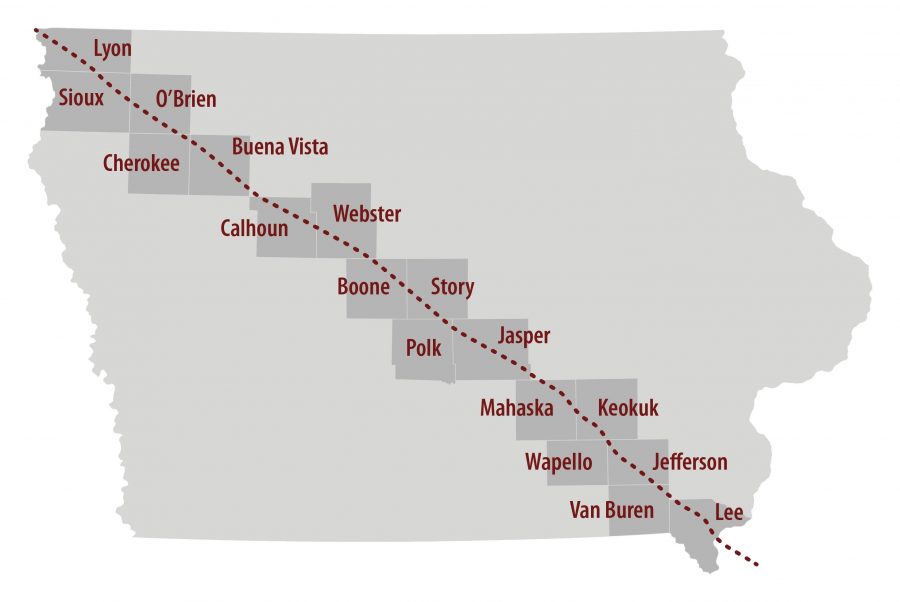Hannah Soyer
[email protected]
There may soon be an oil pipeline cutting diagonally through the state of Iowa, starting in North Dakota and running through South Dakota, Iowa, and eventually ending in Illinois; that is, if protesters don’t stop it. This pipeline project is being called the Bakken pipeline, after the oil fields in North Dakota, where it would originate. The pipeline would cross 346 miles through 18 Iowa counties.
The Bakken pipeline has received much opposition from Iowans. In fact, a group of nine Iowan landowners are suing Dakota Access LLC, the company that is planning on building the pipeline. If completed, the pipeline would cut through 1,295 private parcels of land. Dakota Access reported that it had received approval from 85 percent of the landowners whose land they would be cutting through. However, this means that owners of 195 land parcels have not agreed.
The Iowa Utilities Board has approved eminent domain to be used for the project, meaning that the company spearheading the Bakken pipeline can force these people off their land that the pipeline would run through. Eminent domain, as outlined in the last clause of the Fifth Amendment of the U.S. Constitution, refers to the ability of the government to take private property and convert it to public use in return for compensation. This is also described in the Iowa Constitution Article 1, Section 18. However, as the group of landowners says, eminent domain is meant to be used by the government, not granted to private companies.
RELATED: Fossil-fuel industry should be held liable
But the unlawful seizure of peoples’ land isn’t the only reason the Bakken pipeline should be opposed. The Iowa Tribe of Kansas and Nebraska is objecting to the construction of the pipeline because it will cut through land that is sacred to this tribe. This tribe is a sovereign entity, and according to a letter sent to the Iowa Utilities Board from Lance Foster, the tribe’s historic-preservation officer, they’ve been excluded from any discussion about this project, something they would normally be included in.
There are also health concerns; a leak in the pipeline would contaminate Iowa water and soil. Todd Stamm, the vice president of Sunoco Logistics, the company that would operate the pipeline, has stated that it has data about the potential leakages that could occur at various sites along the pipeline, along with data about the amount of oil that could potentially leak. Suspiciously, however, it refuses to release this information to the public. These data exist because plans have been made in case something like a leak were to happen, so at least the company is aware of the negative environmental effects of a potential oil leak.
But why pretend that the Dakota Access and its partners, including Phillips 66, are trying to reduce negative environmental impacts when the very nature of this project, an oil pipeline, will do no such thing? When we consider the potential cost to our environment, it doesn’t make sense to allow companies to continue expanding the use of fossil fuels when instead we should be demanding clean energy and pooling our resources toward that.
The Bakken pipeline may provide thousands of people with temporary jobs and raise the property taxes in Iowa, but a clean-energy project would undoubtedly do the same thing, without the added negative side effects that will affect our future.







